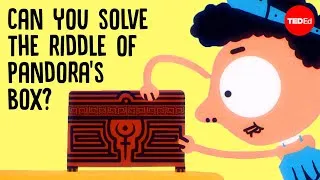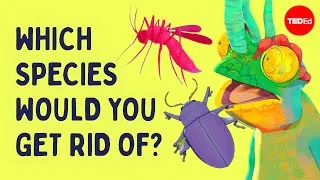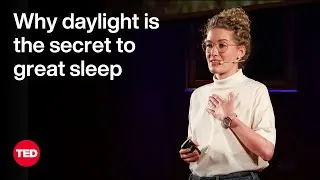請雙擊下方英文字幕播放視頻。
譯者: Jenny Chen
審譯者: Tony Yet
00:26
This is a picture of Maurice Druon,
0
26000
2000
這是莫理斯圖翁
00:28
the Honorary Perpetual Secretary of L'Academie francaise,
1
28000
4000
他是法蘭西學院的
00:32
the French Academy.
2
32000
2000
榮譽終身院士
00:34
He is splendidly attired in his 68,000-dollar uniform,
3
34000
5000
他身穿價值六萬八千美元的華麗院士服
00:39
befitting the role of the French Academy
4
39000
3000
與他在法蘭西學院的職責十分相稱
00:42
as legislating the
5
42000
3000
他的工作是負責規範
00:45
correct usage in French
6
45000
2000
法文的正確用法
00:47
and perpetuating the language.
7
47000
2000
並確保法文永垂不朽
00:49
The French Academy has two main tasks:
8
49000
3000
法蘭西學術院肩負兩項使命:
00:52
it compiles a dictionary of official French.
9
52000
3000
編纂官方版的法文字典--
00:55
They're now working on their ninth edition,
10
55000
3000
現在正在編第九版
00:58
which they began in 1930, and they've reached the letter P.
11
58000
3000
他們從1930年就開始了,現在編到字母P
01:02
They also legislate on correct usage,
12
62000
3000
這些人也規範語言的正確用法
01:05
such as the proper term for what the French call "email,"
13
65000
4000
例如,"email"的準確叫法
01:09
which ought to be "courriel."
14
69000
2000
應該是"courriel"
01:11
The World Wide Web, the French are told,
15
71000
2000
而網際網路 "World Wide Web"
01:13
ought to be referred to as
16
73000
2000
應該要稱為
01:15
"la toile d'araignee mondiale" -- the Global Spider Web --
17
75000
4000
"la toile d'araignee mondiale"--全球蜘蛛網
01:19
recommendations that the French gaily ignore.
18
79000
4000
種種法國人興高采烈地忽略的建議
01:24
Now, this is one model of how language comes to be:
19
84000
4000
好,這是語言演化的模式之一
01:28
namely, it's legislated by an academy.
20
88000
3000
也就是由學術研究院規範語言
01:31
But anyone who looks at language realizes
21
91000
3000
但研究語言的人都會知道
01:34
that this is a rather silly conceit,
22
94000
4000
這是個有點愚蠢的妄想
01:38
that language, rather, emerges from human minds interacting from one another.
23
98000
3000
我們都知道,語言源自於人與人之間的互動
01:41
And this is visible in the unstoppable change in language --
24
101000
4000
我們看到,語言不斷在改變
01:45
the fact that by the time the Academy finishes their dictionary,
25
105000
3000
等到法蘭西學院編完他們的字典
01:48
it will already be well out of date.
26
108000
2000
這本字典早就過時了
01:50
We see it in the
27
110000
2000
我們也看到
01:52
constant appearance of slang and jargon,
28
112000
4000
新的俚語和行話不斷出現
01:56
of the historical change in languages,
29
116000
2000
語言歷經歷史演變
01:58
in divergence of dialects
30
118000
2000
方言產生分歧
02:00
and the formation of new languages.
31
120000
3000
新的語言形成
02:03
So language is not so much a creator or shaper of human nature,
32
123000
3000
因此,不能說語言創造或塑造了人性
02:06
so much as a window onto human nature.
33
126000
3000
語言反倒是個窗口,讓我們得以一窺人性
02:09
In a book that I'm currently working on,
34
129000
3000
在我正在撰寫的這本書中
02:12
I hope to use language to shed light on
35
132000
3000
我希望藉由語言來闡述
02:15
a number of aspects of human nature,
36
135000
2000
人性的某些面向
02:17
including the cognitive machinery
37
137000
2000
包括認知機制
02:19
with which humans conceptualize the world
38
139000
3000
也就是人類理解世界的機制
02:22
and the relationship types that govern human interaction.
39
142000
3000
還有掌管人際互動的各種關係
02:25
And I'm going to say a few words about each one this morning.
40
145000
3000
今天早上,我會針對這幾項逐一簡述
02:28
Let me start off with a technical problem in language
41
148000
2000
首先,我要談談語言裡的一個技術性問題
02:30
that I've worried about for quite some time --
42
150000
2000
這個問題困擾我許久了
02:32
and indulge me
43
152000
4000
也請各位容我分享
02:36
in my passion for verbs and how they're used.
44
156000
3000
我對動詞和動詞用法的熱情
02:39
The problem is, which verbs go in which constructions?
45
159000
3000
這個問題就是,什麼動詞用在什麼句構裡?
02:42
The verb is the chassis of the sentence.
46
162000
3000
動詞是一個句子的基礎
02:45
It's the framework onto which the other parts are bolted.
47
165000
4000
讓其他詞類可以建構於其上
02:49
Let me give you a quick reminder
48
169000
2000
讓我很快地提醒各位
02:51
of something that you've long forgotten.
49
171000
2000
一件大家早就忘記的事
02:53
An intransitive verb, such as "dine," for example,
50
173000
3000
不及物動詞,像是用餐 (dine) 這個字
02:56
can't take a direct object.
51
176000
2000
後面不能接直接受詞
02:58
You have to say, "Sam dined," not, "Sam dined the pizza."
52
178000
3000
你要說 "山姆用餐了",不能說 "山姆用餐披薩"
03:01
A transitive verb mandates
53
181000
2000
而及物動詞的規則是
03:03
that there has to be an object there:
54
183000
2000
後面一定要接受詞
03:05
"Sam devoured the pizza." You can't just say, "Sam devoured."
55
185000
3000
"山姆吞下了 (devour) 披薩",不能說 "山姆吞下了"
03:08
There are dozens or scores of verbs of this type,
56
188000
4000
還有很多像這樣的動詞
03:12
each of which shapes its sentence.
57
192000
2000
每個動詞都塑造了句子的樣貌
03:14
So, a problem in explaining how children learn language,
58
194000
4000
所以,該如何解釋兒童習得語言的方法
03:18
a problem in teaching language to adults so that they don't make grammatical errors,
59
198000
5000
該如何教成人學語言,讓他們不會犯文法錯誤
03:23
and a problem in programming computers to use language is
60
203000
3000
該怎麼設計程式,讓電腦使用語言
03:26
which verbs go in which constructions.
61
206000
2000
問題都出在於:什麼動詞用在什麼句構裡?
03:29
For example, the dative construction in English.
62
209000
2000
以英文的授與句型為例
03:31
You can say, "Give a muffin to a mouse," the prepositional dative.
63
211000
3000
你可以用介詞授與: "把小蛋糕給老鼠"
03:34
Or, "Give a mouse a muffin," the double-object dative.
64
214000
3000
或使用雙受詞授與: "給老鼠小蛋糕"
03:37
"Promise anything to her," "Promise her anything," and so on.
65
217000
4000
"把任何承諾給她"、 "給她任何承諾" 等等
03:41
Hundreds of verbs can go both ways.
66
221000
2000
有上百個動詞在兩種句法裡都行得通
03:43
So a tempting generalization for a child,
67
223000
2000
於是小孩很容易以此類推
03:45
for an adult, for a computer
68
225000
2000
大人和電腦也是
03:47
is that any verb that can appear in the construction,
69
227000
2000
認為任何動詞只要能放在
03:49
"subject-verb-thing-to-a-recipient"
70
229000
3000
"主詞+動詞+事物+to 受格" 這種句構裡
03:52
can also be expressed as "subject-verb-recipient-thing."
71
232000
3000
就也能出現在: "主詞+動詞+受格+事物" 這種句子裡
03:55
A handy thing to have,
72
235000
2000
這樣的推斷很方便
03:57
because language is infinite,
73
237000
2000
因為語言無窮盡
03:59
and you can't just parrot back the sentences that you've heard.
74
239000
3000
你沒辦法重述所聽到的每句話
04:02
You've got to extract generalizations
75
242000
2000
所以你得歸納出一些規則
04:04
so you can produce and understand new sentences.
76
244000
3000
好讓你可以造出並理解新的句子
04:07
This would be an example of how to do that.
77
247000
2000
剛剛的用法就是一例
04:09
Unfortunately, there appear to be idiosyncratic exceptions.
78
249000
3000
不幸地,有許多不尋常的例外
04:12
You can say, "Biff drove the car to Chicago,"
79
252000
3000
你可以說"貝夫開車到芝加哥"
04:15
but not, "Biff drove Chicago the car."
80
255000
3000
但不能說"貝夫開芝加哥到車"
04:18
You can say, "Sal gave Jason a headache,"
81
258000
3000
你可以說"薩爾讓傑森很頭痛"
04:21
but it's a bit odd to say, "Sal gave a headache to Jason."
82
261000
2000
但說成"薩爾把頭痛給了傑森" 就有點奇怪了
04:24
The solution is that these constructions, despite initial appearance,
83
264000
3000
答案就是,這些句構雖然句面上相近
04:27
are not synonymous,
84
267000
2000
卻不盡相同
04:29
that when you crank up the microscope
85
269000
2000
如果你把顯微鏡倍數調高一點
04:31
on human cognition, you see that there's a subtle difference
86
271000
2000
用力觀察人類認知,就會發現這些句子
04:33
in meaning between them.
87
273000
2000
在意義上有些微的差距
04:35
So, "give the X to the Y,"
88
275000
2000
所以,"把X給Y"
04:37
that construction corresponds to the thought
89
277000
3000
這個句構反映了
04:40
"cause X to go to Y." Whereas "give the Y the X"
90
280000
3000
"使X移動到Y那兒去",而 "給YX"
04:43
corresponds to the thought "cause Y to have X."
91
283000
4000
反映了 "讓Y有了X"
04:47
Now, many events can be subject to either construal,
92
287000
4000
好,很多事件都可以解讀為其中一種概念
04:51
kind of like the classic figure-ground reversal illusions,
93
291000
3000
這有點像是圖與地的錯覺測驗
04:54
in which you can either pay attention
94
294000
3000
你可以將注意力放在
04:57
to the particular object,
95
297000
2000
某一樣物體上面
04:59
in which case the space around it recedes from attention,
96
299000
4000
這時候,你就會忽略旁邊的背景
05:03
or you can see the faces in the empty space,
97
303000
2000
你也可以只注意背景中的臉孔
05:05
in which case the object recedes out of consciousness.
98
305000
4000
這時候,畫面中的物體就會受到忽略
05:09
How are these construals reflected in language?
99
309000
2000
這樣的解構怎麼反映在語言上面呢?
05:11
Well, in both cases, the thing that is construed as being affected
100
311000
4000
嗯,在這兩種情況下,被認為受到影響的事物
05:15
is expressed as the direct object,
101
315000
2000
以直接受詞的形式出現
05:17
the noun after the verb.
102
317000
2000
也就是動詞後面的名詞
05:19
So, when you think of the event as causing the muffin to go somewhere --
103
319000
4000
所以如果你認為這個動作使得小蛋糕移動到某處去
05:23
where you're doing something to the muffin --
104
323000
2000
也就是你對小蛋糕做動作的地方--
05:25
you say, "Give the muffin to the mouse."
105
325000
2000
你會說 "把小蛋糕給老鼠"
05:27
When you construe it as "cause the mouse to have something,"
106
327000
3000
如果你解讀成 "使得老鼠獲得了某物"
05:30
you're doing something to the mouse,
107
330000
2000
你對老鼠做了動作
05:32
and therefore you express it as, "Give the mouse the muffin."
108
332000
3000
那麼,你就會說 "給老鼠小蛋糕"
05:35
So which verbs go in which construction --
109
335000
2000
所以,什麼動詞用在什麼句構裡--
05:37
the problem with which I began --
110
337000
2000
我開頭提到的這個問題
05:39
depends on whether the verb specifies a kind of motion
111
339000
4000
取決於該動詞是否點明了一種運動
05:43
or a kind of possession change.
112
343000
2000
還是代表著所有權的轉換
05:45
To give something involves both causing something to go
113
345000
3000
授與某物包括使得某物移動
05:48
and causing someone to have.
114
348000
2000
以及使得某人獲得某物
05:50
To drive the car only causes something to go,
115
350000
3000
開車只造成某物移動
05:53
because Chicago's not the kind of thing that can possess something.
116
353000
2000
因為芝加哥沒辦法擁有某物
05:55
Only humans can possess things.
117
355000
3000
只有人類可以擁有事物
05:58
And to give someone a headache causes them to have the headache,
118
358000
2000
而"讓某人頭痛"使得他們頭很痛
06:00
but it's not as if you're taking the headache out of your head
119
360000
3000
但你不能把你的頭痛從腦袋裡取出來
06:03
and causing it to go to the other person,
120
363000
2000
使它移動到別人那兒
06:05
and implanting it in them.
121
365000
2000
然後想辦法讓別人頭痛
06:07
You may just be loud or obnoxious,
122
367000
2000
你只能大聲喧鬧或討人厭
06:09
or some other way causing them to have the headache.
123
369000
2000
或用其他方法使別人頭痛
06:11
So, that's
124
371000
4000
所以這個例子
06:15
an example of the kind of thing that I do in my day job.
125
375000
2000
就說明了我每天在做的工作
06:17
So why should anyone care?
126
377000
2000
為什麼有人要在乎這種事?
06:19
Well, there are a number of interesting conclusions, I think,
127
379000
3000
嗯,我認為有很多有趣的結論
06:22
from this and many similar kinds of analyses
128
382000
4000
可以從這種還有許多類似的分析中得出
06:26
of hundreds of English verbs.
129
386000
2000
從分析上百個英文動詞中得出
06:28
First, there's a level of fine-grained conceptual structure,
130
388000
3000
首先,有種非常微妙的認知結構
06:31
which we automatically and unconsciously compute
131
391000
3000
是我們自動或下意識地在運用的
06:34
every time we produce or utter a sentence, that governs our use of language.
132
394000
4000
影響我們造出或說出每個支配我們語言使用的句子
06:38
You can think of this as the language of thought, or "mentalese."
133
398000
4000
你可以把它想成思想的語言,或心理語言
06:42
It seems to be based on a fixed set of concepts,
134
402000
3000
它似乎建構於一種固有的概念之上
06:45
which govern dozens of constructions and thousands of verbs --
135
405000
3000
這樣的概念支配了十幾種句構和上千個動詞的用法
06:48
not only in English, but in all other languages --
136
408000
3000
不只在英文裡,在其他語言裡也有這種
06:51
fundamental concepts such as space,
137
411000
2000
基本的概念,例如,空間
06:53
time, causation and human intention,
138
413000
3000
時間、因果關係和動機
06:56
such as, what is the means and what is the ends?
139
416000
3000
像是,哪個是手段,哪個是目的?
06:59
These are reminiscent of the kinds of categories
140
419000
2000
這與"範疇"有異曲同工之妙
07:01
that Immanuel Kant argued
141
421000
2000
康德認為這些範疇
07:03
are the basic framework for human thought,
142
423000
3000
組成了人類思想的基本架構
07:06
and it's interesting that our unconscious use of language
143
426000
3000
有趣的是,我們下意識中所使用的語言
07:09
seems to reflect these Kantian categories.
144
429000
3000
似乎反映了康德所提出的範疇
07:12
Doesn't care about perceptual qualities,
145
432000
2000
我們的語言不在乎感觀的特徵
07:14
such as color, texture, weight and speed,
146
434000
2000
像是顏色、質地、重量和速度
07:16
which virtually never differentiate
147
436000
2000
這些幾乎都不會影響
07:18
the use of verbs in different constructions.
148
438000
2000
不同句構中動詞的用法
07:21
An additional twist is that all of the constructions in English
149
441000
3000
此外,英文裡所有的句構
07:24
are used not only literally,
150
444000
2000
都不只具有字面的意義
07:26
but in a quasi-metaphorical way.
151
446000
3000
還帶有一些隱喻的意味
07:29
For example, this construction, the dative,
152
449000
2000
比如說,這個授與句型
07:31
is used not only to transfer things,
153
451000
2000
不只能用來轉讓事物
07:33
but also for the metaphorical transfer of ideas,
154
453000
3000
還能用來移轉想法
07:36
as when we say, "She told a story to me"
155
456000
2000
像我們說: "她講故事給我聽"
07:38
or "told me a story,"
156
458000
2000
或 "她跟我講故事"
07:40
"Max taught Spanish to the students" or "taught the students Spanish."
157
460000
3000
"馬克斯教授西班牙文給學生"或"教學生西班牙文"
07:43
It's exactly the same construction,
158
463000
2000
這些都是相同的句構
07:45
but no muffins, no mice, nothing moving at all.
159
465000
4000
但句子裡沒有小蛋糕,也沒有老鼠。沒有東西移動
07:49
It evokes the container metaphor of communication,
160
469000
3000
這就引發了溝通裡的"容器隱喻"
07:52
in which we conceive of ideas as objects,
161
472000
2000
我們將想法視為物體
07:54
sentences as containers,
162
474000
2000
把句子當成容器
07:56
and communication as a kind of sending.
163
476000
2000
而溝通是一種傳送方式
07:58
As when we say we "gather" our ideas, to "put" them "into" words,
164
478000
3000
就像我們說,將想法"收集"起來,"放進"文字裡
08:01
and if our words aren't "empty" or "hollow,"
165
481000
2000
而如果我們的話語不至於"空洞"或"空泛"
08:03
we might get these ideas "across" to a listener,
166
483000
3000
我們就可以將想法"傳達"給聽者
08:06
who can "unpack" our words to "extract" their "content."
167
486000
3000
聽者可以"拆解"我們的話語,"擷取"其中的"內容"
08:09
And indeed, this kind of verbiage is not the exception, but the rule.
168
489000
3000
這些用語不是例外,而是規則
08:12
It's very hard to find any example of abstract language
169
492000
3000
很難從抽象的語言中找到任何
08:15
that is not based on some concrete metaphor.
170
495000
3000
不是建立於具體的譬喻之上的例子
08:18
For example, you can use the verb "go"
171
498000
3000
舉例而言,你可以用"去" (go) 這個動詞
08:21
and the prepositions "to" and "from"
172
501000
2000
搭配介系詞"到"(to) 和"從" (from)
08:23
in a literal, spatial sense.
173
503000
2000
表達空間概念
08:25
"The messenger went from Paris to Istanbul."
174
505000
2000
"信差從巴黎去到伊斯坦堡"
08:27
You can also say, "Biff went from sick to well."
175
507000
3000
你也可以說 "貝夫從生病到康復"
08:30
He needn't go anywhere. He could have been in bed the whole time,
176
510000
3000
他不用去哪裡,他可能一直都躺在床上
08:33
but it's as if his health is a point in state space
177
513000
2000
但他的健康就像狀態空間裡的一個點
08:35
that you conceptualize as moving.
178
515000
2000
而你想像這個點會移動
08:37
Or, "The meeting went from three to four,"
179
517000
2000
或者, "會議從三點開到四點"
08:39
in which we conceive of time as stretched along a line.
180
519000
3000
我們想像時間綿延於一條線上
08:42
Likewise, we use "force" to indicate
181
522000
3000
同樣地,我們利用"force" (用力、強迫)
08:45
not only physical force,
182
525000
2000
指的不只是身體的力量
08:47
as in, "Rose forced the door to open,"
183
527000
2000
像是 "羅絲用力把門打開"
08:49
but also interpersonal force,
184
529000
2000
也可以指涉人際上的力量
08:51
as in, "Rose forced Sadie to go," not necessarily by manhandling her,
185
531000
4000
像是 "羅絲強迫珊蒂離開"--不一定要親自動手
08:55
but by issuing a threat.
186
535000
2000
可以利用威脅利誘
08:57
Or, "Rose forced herself to go,"
187
537000
2000
或是 "羅絲強迫自己離開"
08:59
as if there were two entities inside Rose's head,
188
539000
2000
彷彿羅絲腦袋裡有兩個個體
09:02
engaged in a tug of a war.
189
542000
2000
正在進行一場拔河戰
09:04
Second conclusion is that the ability to conceive
190
544000
3000
我得出的另一個結論是,解構的能力
09:07
of a given event in two different ways,
191
547000
3000
將一件事情解讀成兩種意義的能力
09:10
such as "cause something to go to someone"
192
550000
2000
像是 "使得某物移動到某人那兒去"
09:12
and "causing someone to have something,"
193
552000
2000
以及"使得某人擁有某物"
09:14
I think is a fundamental feature of human thought,
194
554000
4000
是人類思想最基本的特質
09:18
and it's the basis for much human argumentation,
195
558000
3000
也是人們許多爭論的來源
09:21
in which people don't differ so much on the facts
196
561000
3000
與其說大家對事實爭論不下
09:24
as on how they ought to be construed.
197
564000
2000
不如說他們對事實的解讀方法有不同見解
09:26
Just to give you a few examples:
198
566000
2000
給各位幾個例子:
09:28
"ending a pregnancy" versus "killing a fetus;"
199
568000
2000
"結束妊娠期" 和 "殺死胎兒"
09:30
"a ball of cells" versus "an unborn child;"
200
570000
3000
"一團細胞" 和 "未出世的孩子"
09:33
"invading Iraq" versus "liberating Iraq;"
201
573000
2000
"入侵伊拉克" 和 "解放伊拉克"
09:35
"redistributing wealth" versus "confiscating earnings."
202
575000
4000
"重新分配財富" 和 "沒收所得"
09:39
And I think the biggest picture of all
203
579000
2000
而我認為,若採取最宏觀的角度
09:41
would take seriously the fact
204
581000
3000
你會認真地看待一個事實
09:44
that so much of our verbiage about abstract events
205
584000
3000
那就是,我們描述抽象事件的用語
09:47
is based on a concrete metaphor
206
587000
2000
大多建立於具體的譬喻之上
09:49
and see human intelligence itself
207
589000
2000
你會將人類的智能本身視為
09:51
as consisting of a repertoire of concepts --
208
591000
3000
涵蓋了一系列的概念--
09:54
such as objects, space, time, causation and intention --
209
594000
3000
諸如目的、空間、時間、因果關係和意圖--
09:57
which are useful in a social, knowledge-intensive species,
210
597000
4000
對於需要大量社交和知識的物種非常有用
10:01
whose evolution you can well imagine,
211
601000
2000
這個物種的演化各位都很熟悉
10:03
and a process of metaphorical abstraction
212
603000
3000
而人類智能還包含抽象隱喻的過程
10:06
that allows us to bleach these concepts
213
606000
2000
讓我們抽離這些概念裡面
10:08
of their original conceptual content --
214
608000
3000
原有的內涵--
10:11
space, time and force --
215
611000
3000
空間、時間和力量--
10:14
and apply them to new abstract domains,
216
614000
2000
然後用在新的抽象領域上
10:16
therefore allowing a species that evolved
217
616000
3000
所以一個已經進化到
10:19
to deal with rocks and tools and animals,
218
619000
2000
學會使用石器、工具和禽獸的物種
10:21
to conceptualize mathematics, physics, law
219
621000
3000
也能了解數學、物理、法律
10:24
and other abstract domains.
220
624000
3000
和其他抽象的領域
10:27
Well, I said I'd talk about two windows on human nature --
221
627000
3000
嗯,我說我會講到人性的兩扇窗口:
10:30
the cognitive machinery with which we conceptualize the world,
222
630000
3000
剛剛提到我們解構這個世界的認知機制
10:33
and now I'm going to say a few words about the relationship types
223
633000
2000
現在我要講的是不同類型的人際關係
10:35
that govern human social interaction,
224
635000
2000
它們掌控了人類的社交互動
10:37
again, as reflected in language.
225
637000
2000
以及這些關係如何反映在語言上面
10:40
And I'll start out with a puzzle, the puzzle of indirect speech acts.
226
640000
4000
我首先要講個謎題:間接語言行為的謎題
10:44
Now, I'm sure most of you have seen the movie "Fargo."
227
644000
2000
相信很多人都看過《冰血暴》這部電影
10:46
And you might remember the scene in which
228
646000
2000
你可能記得在其中一幕裡
10:48
the kidnapper is pulled over by a police officer,
229
648000
3000
警察攔下綁匪的車
10:51
is asked to show his driver's license
230
651000
2000
請他出示駕照
10:53
and holds his wallet out
231
653000
2000
而綁匪舉起皮夾
10:55
with a 50-dollar bill extending
232
655000
3000
裡頭露出一張五十美元的鈔票
10:58
at a slight angle out of the wallet.
233
658000
2000
以微妙的角度若隱若現著
11:00
And he says, "I was just thinking
234
660000
2000
他說:"我在想"
11:02
that maybe we could take care of it here in Fargo,"
235
662000
2000
"也許我們可以就地解決"
11:04
which everyone, including the audience,
236
664000
3000
每個人,包括電影觀眾
11:07
interprets as a veiled bribe.
237
667000
3000
都會將這句話解讀為隱含的賄賂
11:10
This kind of indirect speech is rampant in language.
238
670000
4000
這種不直接的表達方法在語言裡隨處可見
11:14
For example, in polite requests,
239
674000
2000
舉例來說,在禮貌性的請求中
11:16
if someone says, "If you could pass the guacamole,
240
676000
2000
如果有人說 "如果你能遞給我鱷梨沙拉醬"
11:18
that would be awesome,"
241
678000
2000
"那就太棒了"
11:20
we know exactly what he means,
242
680000
2000
我們都知道他要表達什麼意思
11:22
even though that's a rather bizarre
243
682000
2000
雖然他表達的概念
11:24
concept being expressed.
244
684000
2000
實在有點詭異
11:26
(Laughter)
245
686000
3000
(笑聲)
11:29
"Would you like to come up and see my etchings?"
246
689000
2000
"妳想來我家欣賞我的蝕刻畫嗎?"
11:31
I think most people
247
691000
2000
我想大部份的人
11:33
understand the intent behind that.
248
693000
3000
都知道這句話背後的動機是什麼
11:36
And likewise, if someone says,
249
696000
2000
同樣地,如果有人說
11:38
"Nice store you've got there. It would be a real shame if something happened to it" --
250
698000
3000
"你的店真不賴,如果發生什麼不幸,那真是太可惜了"
11:41
(Laughter) --
251
701000
1000
(笑聲)
11:42
we understand that as a veiled threat,
252
702000
2000
我們也都了解這背後隱含的是個恐嚇
11:44
rather than a musing of hypothetical possibilities.
253
704000
3000
而不是真的在思考這個假設的可能性
11:47
So the puzzle is, why are bribes,
254
707000
3000
所以這個謎題是,為什麼賄賂、
11:50
polite requests, solicitations and threats so often veiled?
255
710000
3000
有禮的請求、誘惑和恐嚇都常被隱藏起來?
11:53
No one's fooled.
256
713000
2000
沒有人會信以為真--
11:55
Both parties know exactly what the speaker means,
257
715000
3000
雙方都了解講者的意思為何
11:58
and the speaker knows the listener knows
258
718000
2000
講者也知道聽者知道
12:00
that the speaker knows that the listener knows, etc., etc.
259
720000
3000
講者知道聽者知道...以此類推
12:03
So what's going on?
260
723000
2000
究竟是怎麼一回事?
12:05
I think the key idea is that language
261
725000
2000
我認為關鍵在於語言
12:07
is a way of negotiating relationships,
262
727000
2000
讓我們可以協商彼此的關係為何
12:09
and human relationships fall into a number of types.
263
729000
3000
而人際關係有好幾種類型
12:12
There's an influential taxonomy by the anthropologist Alan Fiske,
264
732000
4000
人類學家費斯克提出了一種有名的分類法
12:16
in which relationships can be categorized, more or less,
265
736000
3000
他說,人與人間的關係或多或少可以分成幾種模式
12:19
into communality, which works on the principle
266
739000
2000
團體關係,其原則是
12:21
"what's mine is thine, what's thine is mine,"
267
741000
3000
"我的就是你的,你的就是我的"--
12:24
the kind of mindset that operates within a family, for example;
268
744000
4000
這種關係常見於家人之間
12:28
dominance, whose principle is "don't mess with me;"
269
748000
3000
統治關係,最高指導原則是"別惹我"
12:31
reciprocity, "you scratch my back, I'll scratch yours;"
270
751000
4000
互惠關係:"你幫我抓背,我就幫你抓背"
12:35
and sexuality, in the immortal words of Cole Porter, "Let's do it."
271
755000
5000
性慾關係,套句柯爾波特的名言:"咱們做吧"
12:40
Now, relationship types can be negotiated.
272
760000
3000
這些關係模式是可以經過協商的
12:43
Even though there are default situations
273
763000
3000
即使在某些既定的情況下
12:46
in which one of these mindsets can be applied,
274
766000
2000
適用上述其中一種關係模式
12:48
they can be stretched and extended.
275
768000
3000
但仍有延伸擴大的空間
12:51
For example, communality applies most naturally
276
771000
3000
舉例來說,團體關係最常出現在
12:54
within family or friends,
277
774000
2000
家人或朋友關係中
12:56
but it can be used to try to transfer
278
776000
2000
但也可以用來試圖將
12:58
the mentality of sharing
279
778000
2000
分享的心態
13:00
to groups that ordinarily would not be disposed to exercise it.
280
780000
4000
轉移到平常不這麼運作的群體
13:04
For example, in brotherhoods, fraternal organizations,
281
784000
4000
例如,兄弟會、兄弟組織
13:08
sororities, locutions like "the family of man,"
282
788000
3000
姊妹會中,"兄弟一家親"這種慣用語
13:11
you try to get people who are not related
283
791000
2000
就是想要讓一群非親非故的人
13:13
to use the relationship type that would ordinarily
284
793000
4000
使用這種平常只適用於
13:17
be appropriate to close kin.
285
797000
2000
近親的關係模式
13:19
Now, mismatches -- when one person assumes one relationship type,
286
799000
3000
但差異出現時--一個人以為是某種關係模式
13:22
and another assumes a different one -- can be awkward.
287
802000
3000
另一個人以為是另一種模式--就糗大了
13:25
If you went over and you helped yourself
288
805000
2000
如果你伸筷自行取用
13:27
to a shrimp off your boss' plate,
289
807000
2000
你老闆盤裡的蝦子
13:29
for example, that would be an awkward situation.
290
809000
2000
這個情況可能就尷尬了
13:31
Or if a dinner guest after the meal
291
811000
2000
或是來家裡用餐的客人在飯後
13:33
pulled out his wallet and offered to pay you for the meal,
292
813000
3000
取出錢包要付你餐費
13:36
that would be rather awkward as well.
293
816000
2000
那也相當難堪
13:38
In less blatant cases,
294
818000
3000
在比較不明顯的情境裡
13:41
there's still a kind of negotiation that often goes on.
295
821000
3000
也常進行著關係模式的協商
13:44
In the workplace, for example,
296
824000
2000
舉例來說,在工作場合上
13:46
there's often a tension over whether an employee
297
826000
2000
常常有個兩難:究竟員工
13:48
can socialize with the boss,
298
828000
2000
能不能跟老闆聊天
13:50
or refer to him or her
299
830000
2000
或是直呼他或她
13:52
on a first-name basis.
300
832000
2000
的大名
13:54
If two friends have a
301
834000
2000
如果兩個朋友要進行一項
13:56
reciprocal transaction, like selling a car,
302
836000
2000
互惠交易,像是賣車
13:58
it's well known that this can be a source
303
838000
2000
大家都知道這可能造成
14:00
of tension or awkwardness.
304
840000
2000
兩難或窘境
14:02
In dating, the transition
305
842000
2000
兩人約會
14:04
from friendship to sex
306
844000
2000
想要從友情發展到性關係
14:06
can lead to, notoriously, various forms of awkwardness,
307
846000
3000
可能造成各種的窘境,這眾所皆知
14:09
and as can sex in the workplace,
308
849000
2000
辦公室裡的性關係亦然
14:11
in which we call the conflict between a
309
851000
2000
我們稱這種發生在
14:13
dominant and a sexual relationship "sexual harassment."
310
853000
4000
統治關係與性慾關係間的衝突為"性騷擾"
14:17
Well, what does this have to do with language?
311
857000
2000
那,這些和語言有什麼關係?
14:19
Well, language, as a social interaction,
312
859000
2000
嗯,語言,就像社交
14:21
has to satisfy two conditions.
313
861000
2000
需要符合兩種條件
14:23
You have to convey the actual content --
314
863000
3000
你必須表達實質內容--
14:26
here we get back to the container metaphor.
315
866000
2000
這邊我們要回到容器隱喻
14:28
You want to express the bribe, the command, the promise,
316
868000
3000
你想要傳達賄賂、命令、承諾
14:31
the solicitation and so on,
317
871000
2000
誘惑等等意含
14:33
but you also have to negotiate
318
873000
2000
但你必須要協商
14:35
and maintain the kind of relationship
319
875000
2000
同時維持
14:37
you have with the other person.
320
877000
2000
你和對方之間的關係
14:39
The solution, I think, is that we use language at two levels:
321
879000
3000
我想,解決方法就是我們用的語言要有兩個層次:
14:42
the literal form signals
322
882000
2000
字面上的意思表達了
14:44
the safest relationship with the listener,
323
884000
2000
你和聽者最安全的關係
14:46
whereas the implicated content --
324
886000
2000
而你暗指的內容--
14:49
the reading between the lines that we count on the listener to perform --
325
889000
2000
我們希望對方聽到的弦外之音--
14:52
allows the listener to derive the interpretation
326
892000
2000
讓聽者解讀出
14:54
which is most relevant in context,
327
894000
2000
在情境裡最切題的意義
14:56
which possibly initiates a changed relationship.
328
896000
3000
這可能會造成關係的改變
14:59
The simplest example of this is in the polite request.
329
899000
4000
最簡單的例子就是有禮的請求
15:03
If you express your request as a conditional --
330
903000
3000
如果你以假設句傳達你的請求
15:06
"if you could open the window, that would be great" --
331
906000
3000
"如果你能開個窗就太好了"
15:09
even though the content is an imperative,
332
909000
2000
雖然這句話的內容是命令句
15:11
the fact that you're not using the imperative voice
333
911000
2000
但是你没有使用命令語氣
15:14
means that you're not acting as if you're in a relationship of dominance,
334
914000
3000
表示你並沒有表現得好像你們處於統治關係
15:18
where you could presuppose the compliance of the other person.
335
918000
3000
你沒有假設對方一定會屈從
15:21
On the other hand, you want the damn guacamole.
336
921000
2000
另一方面,你想要那該死的鱷梨沙拉醬
15:23
By expressing it as an if-then statement,
337
923000
3000
用"如果...就"的假設句
15:26
you can get the message across
338
926000
2000
你不但可以傳達語意
15:28
without appearing to boss another person around.
339
928000
4000
也不會顯得頤指氣使
15:32
And in a more subtle way, I think, this works
340
932000
2000
更微妙一點,我認為這可以適用於
15:34
for all of the veiled speech acts
341
934000
2000
所有隱含的言語行為
15:36
involving plausible deniability:
342
936000
2000
包括合理的推諉:
15:38
the bribes, threats, propositions,
343
938000
2000
賄賂、恐嚇、提議
15:40
solicitations and so on.
344
940000
2000
誘惑等等
15:42
One way of thinking about it is to imagine what it would be like
345
942000
2000
我們可以這麼思考:想像一下
15:44
if language -- where it could only be used literally.
346
944000
3000
如果我們只能使用語言字面的意思,會是什麼情況
15:47
And you can think of it in terms of a
347
947000
2000
你可以用
15:49
game-theoretic payoff matrix.
348
949000
3000
賽局理論裡的收益矩陣來分析
15:52
Put yourself in the position of the
349
952000
2000
設想,如果你是
15:54
kidnapper wanting to bribe the officer.
350
954000
3000
想要賄賂警察的綁匪
15:57
There's a high stakes
351
957000
2000
你面臨很高的風險
15:59
in the two possibilities
352
959000
3000
因為有兩種可能:
16:02
of having a dishonest officer or an honest officer.
353
962000
3000
你可能會遇到好警察或壞警察
16:05
If you don't bribe the officer,
354
965000
3000
如果你不賄賂警察
16:08
then you will get a traffic ticket --
355
968000
2000
你就得吃上罰單
16:10
or, as is the case of "Fargo," worse --
356
970000
2000
或者像在《冰血暴》裡,就更慘了--
16:12
whether the honest officer
357
972000
2000
不論電影裡那個好警察
16:14
is honest or dishonest.
358
974000
2000
究竟是好是壞:
16:16
Nothing ventured, nothing gained.
359
976000
2000
綁匪無論如何都得放手一博
16:18
In that case, the consequences are rather severe.
360
978000
3000
那麼後果就相當嚴重了
16:21
On the other hand, if you extend the bribe,
361
981000
2000
另一方面,如果你行賄
16:23
if the officer is dishonest,
362
983000
2000
遇上壞警察
16:25
you get a huge payoff of going free.
363
985000
3000
你得到的收益很高--逍遙法外
16:28
If the officer is honest, you get a huge penalty
364
988000
3000
但遇上好警察,面臨的刑罰很重
16:31
of being arrested for bribery.
365
991000
2000
你將被依賄賂罪逮捕
16:33
So this is a rather fraught situation.
366
993000
2000
所以這是個相當棘手的情況
16:35
On the other hand, with indirect language,
367
995000
2000
但如果使用間接語言
16:37
if you issue a veiled bribe,
368
997000
2000
你使用隱含的賄賂
16:39
then the dishonest officer
369
999000
2000
那麼壞警察
16:41
could interpret it as a bribe,
370
1001000
2000
可以將之解讀為賄賂
16:43
in which case you get the payoff of going free.
371
1003000
3000
你就得以逍遙法外了
16:46
The honest officer can't hold you to it as being a bribe,
372
1006000
3000
而好警察也不能因此將你定罪
16:49
and therefore, you get the nuisance of the traffic ticket.
373
1009000
3000
所以你頂多拿到一張罰單
16:52
So you get the best of both worlds.
374
1012000
3000
兩全其美
16:55
And a similar analysis, I think,
375
1015000
2000
我認為,類似的分析
16:57
can apply to the potential awkwardness
376
1017000
2000
也適用於
16:59
of a sexual solicitation,
377
1019000
2000
求歡可能會遇到的尷尬問題
17:01
and other cases where plausible deniability is an asset.
378
1021000
3000
還有其他亟需合理推諉的情境
17:04
I think this affirms
379
1024000
2000
我想這印證了
17:06
something that's long been known by diplomats --
380
1026000
2000
外交家老早就知道的事實--
17:08
namely, that the vagueness of language,
381
1028000
2000
也就是說,語言的含糊曖昧
17:10
far from being a bug or an imperfection,
382
1030000
3000
並不是語言的缺陷或不完美
17:13
actually might be a feature of language,
383
1033000
3000
而可能是語言的一種特色
17:16
one that we use to our advantage in social interactions.
384
1036000
3000
有利於我們的社交互動
17:19
So to sum up: language is a collective human creation,
385
1039000
3000
做個總結:語言是人類創造的總和
17:22
reflecting human nature,
386
1042000
2000
反映了人性--
17:24
how we conceptualize reality,
387
1044000
2000
我們如何理解現實
17:26
how we relate to one another.
388
1046000
2000
我們如何與他人產生連結
17:28
And then by analyzing the various quirks and complexities of language,
389
1048000
4000
而藉由分析語言的稀奇古怪與錯綜複雜
17:32
I think we can get a window onto what makes us tick.
390
1052000
3000
我相信我們可以一窺人類的思想
17:35
Thank you very much.
391
1055000
1000
謝謝各位
17:36
(Applause)
392
1056000
1000
(掌聲)
New videos
關於本網站
本網站將向您介紹對學習英語有用的 YouTube 視頻。 您將看到來自世界各地的一流教師教授的英語課程。 雙擊每個視頻頁面上顯示的英文字幕,從那裡播放視頻。 字幕與視頻播放同步滾動。 如果您有任何意見或要求,請使用此聯繫表與我們聯繫。







